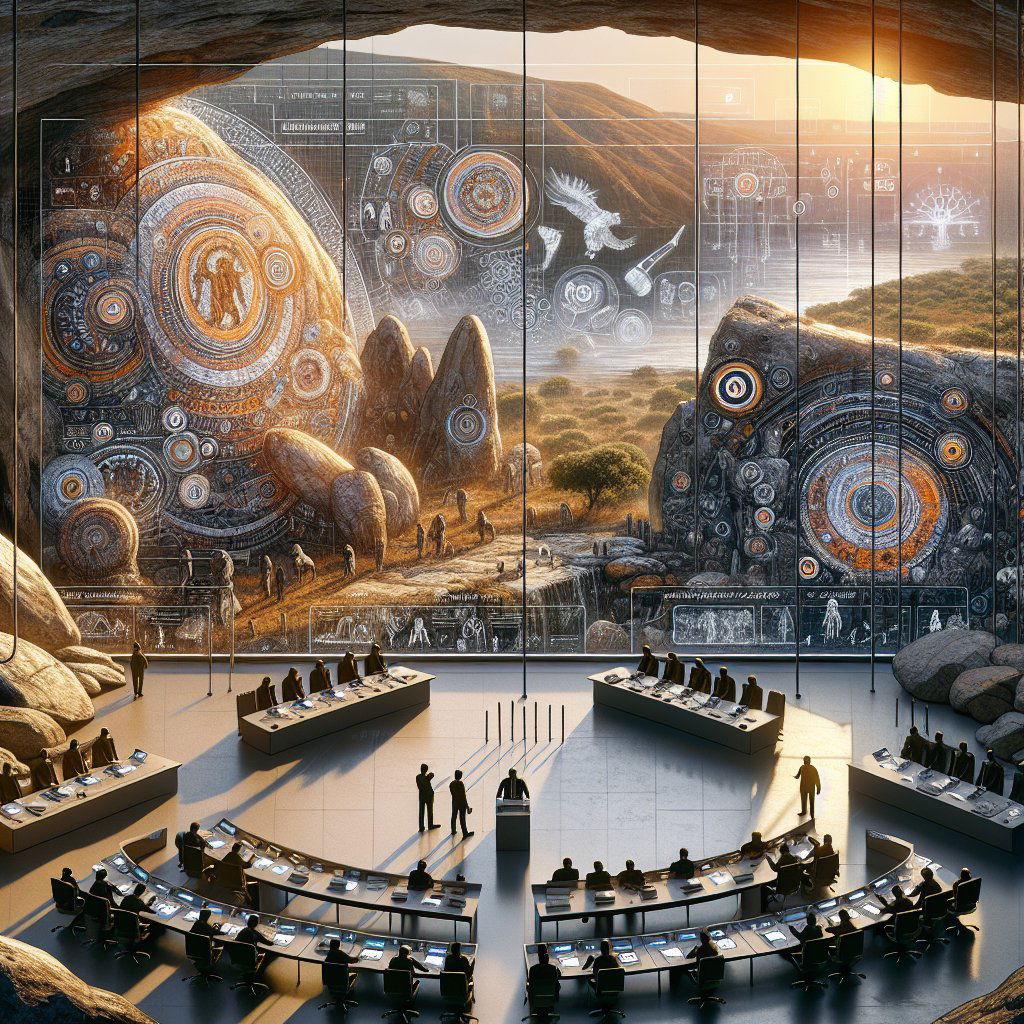Image created by AI
Two Western Cape Treasures Poised for UNESCO World Heritage Prestige
In a development that holds the promise of prestige and significant boost to tourism, two historical sites in South Africa's Western Cape are on the cusp of being crowned as UNESCO World Heritage Sites. The final decision, awaited with bated breath by cultural and natural heritage enthusiasts, is set to emerge from the 46th Session of the UNESCO World Heritage Committee to be held later this year.
The Western Cape Government, buoyed by the support from other provinces and the national government, is attending the UNESCO session in New Household, expected to convene from July 21 to July 31, 2024. This crucial gathering will deliberate on the inclusiveness of sites that meet the exclusive criteria laid down by the World Heritage Convention.
The two Western Cape gems vying for global recognition include the Diepkloof Rock Shelter near Elands Bay and the Pinnacle Point Site Complex in Mossel Bay. Together with KwaZulu-Natal's Sibhudu Cave, they form part of a collective nomination titled ‘The Emergence of Modern Human Behaviour: The Pleistocene Occupation Sites of South Africa.’ This nomination features three critical Middle Stone Age sites that have offered significant insights into the evolution of modern human behaviour, a fascinating era in the development of our species.
Provincial Minister of Cultural Affairs and Sport, Ricardo Mackenzie, remarked on the significance of these nominations, acknowledging them as emblems of human resilience, innovation, and creativity. He noted that the honour of World Heritage status would not only preserve these extraordinary archaeological sites for posterity but also stimulate economic development and create job opportunities through heightened interest in the area's cultural tourism.
Adding to Minister Mackenzie's remarks, Premier Alan Wine emphasized the Western Cape's rich array of cultural assets and the necessity to leverage them to deepen knowledge and spur economic and employment growth within the region. The designation of World Heritage status would propel these sites onto an esteemed global stage, likely attracting an international audience and elevating the Western Cape's position as a premier cultural destination.
A follow-up announcement is anticipated post the UNESCO session, and all eyes are on the outcome that could potentially transform the Western Cape's heritage landscape. The success of these nominations is a testament to the sustained efforts involving stakeholder engagement, meticulous quality assurance, and international evaluation processes that have preceded this pivotal moment.










